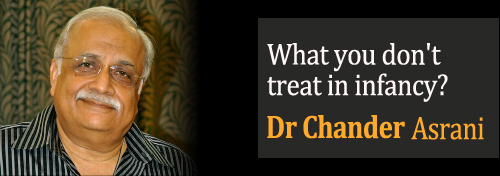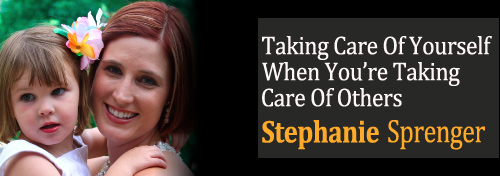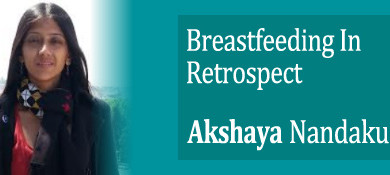What you don’t treat in Infancy?
35 years of family practice, clarifying doubts & concerns of parents (both young and old), nearly a decade of managing queries on Growing Well and here I was with thousands of anecdotes and no time / place to publish!
A chance find of Parentous – a comment on one of the posts – an invitation from the Team – & here is my first post.
Two health conditions, that worry most young/ new mothers, need not be treated.
1. “Doc, my daughter, 1 month old, has been passing 8-10 stools since birth. Have tried every thing. Been to two doctors also. Nothing worked. Please do something.”
“What was baby’s weight at birth?”
“2.8 kgs. But I have come for her stool problem”
“What is her weight now?”
“3.2 kgs. But…
“Does she pass a stool each time you give a feed?”
“Yes!” Astonished “How do you know?”
“Is she only on breast milk?”
“Yes”
With a smile I proclaimed, “No treatment required”
Few facts:
Infants (below six months of age) have a strong gastro colic reflex (entry of food – milk) in the stomach causes rectum to contract and evacuate.
The capacity of a child’s stomach at birth is 5-7 ml and 30-70 (6-14 tea spoonful) at 1 month. The intestinal cavity is akin to a ball pen refill. Thus even a small quantity entering the stomach leads to an evacuation.
Rules better be followed:
- Increased frequency of stools need not be treated, provided
- They are not watery
- There is no offensive smell
- There is no fever
- Child is passing urine normally
- Child is playful & has a good appetite
- Child continues to gain weight
- If the answer to any of the above is ‘YES’ immediately consult a doctor
2. “Doc, my baby has fever.”
“How much?
“Don’t know. But his head is very hot”
“Do you have a thermometer at home?”
“Yes, I have. I have not measured but I know it must be more than hundred.” This was a first time mother; but experienced courtesy a joint family and lots of kids at home.
“Please put in a thermometer and let me know” I am getting impatient…
“Doctor, no need to measure. We all have felt his forehead. It is burning. Even hands and feet are cold. It has to be around 100.5. Can we give ***ci*, this was child’s grand mother.
I was certain by then at least 4-5 people must have touched child’s fore head (including the ubiquitous maid) and nodded grimly.
Getting a ‘déjà vu’ feeling?
Some facts: 25% of our total body volume of blood reaches the brain (head). We all know blood is warm so, naturally, forehead is warmer than rest of the body (be it an infant or an adult). Similarly feet are cooler than rest of the body as the skin on the soles is thicker than anywhere else in the body; and by now you know how little blood must be reaching there with head/ brain taking a lion’s share.
Add to this each hand that touches, transfers some body heat to the forehead; multiply by 4 or 5 and head is definitely warmer than it was when the first hand touched. Then if first two said ‘warm’; third one says ‘it is hot’ and by the time fifth hand touches and proclaims ‘burning’….
Rules better be followed:
- Never give any medicine until thermometer shows a reading higher than normal. Ensure that thermometer is put properly in the armpit and is not measuring temperature of the clothing. It is as important not to miss a high reading.
- Apyresis (bang normal temperature) is not desirable but Optimum pyresis is desirable as mild fever can be help fight illness, by slowing down the reproduction of fever causing germs and/ or stimulating the body’s immune response. You may discuss with your doctor, at what level you should give medicine – but always an objective decision – measure and manage!
- Gathering public opinion about which medicine is best for bringing down fever is wrong. Ask your doctor! Also giving medicines to bring down fever is only one aspect of treating the child; cause of fever must be diagnosed and rationally treated!
- Pay more attention to accompanying symptoms viz. irritability, excessive crying, listlessness, undue lethargy, a child who is not his/ her usual self than ‘head is hot and feet are cold’
Dr Chander Asrani, father to three daughters and grand father to one, is a post graduate in Family Medicine. He has over 35 years in clinical practice, launched www.growingwell.com in 2000 and since then has been writing on various subjects. Know more about him at about.me/drasrani


